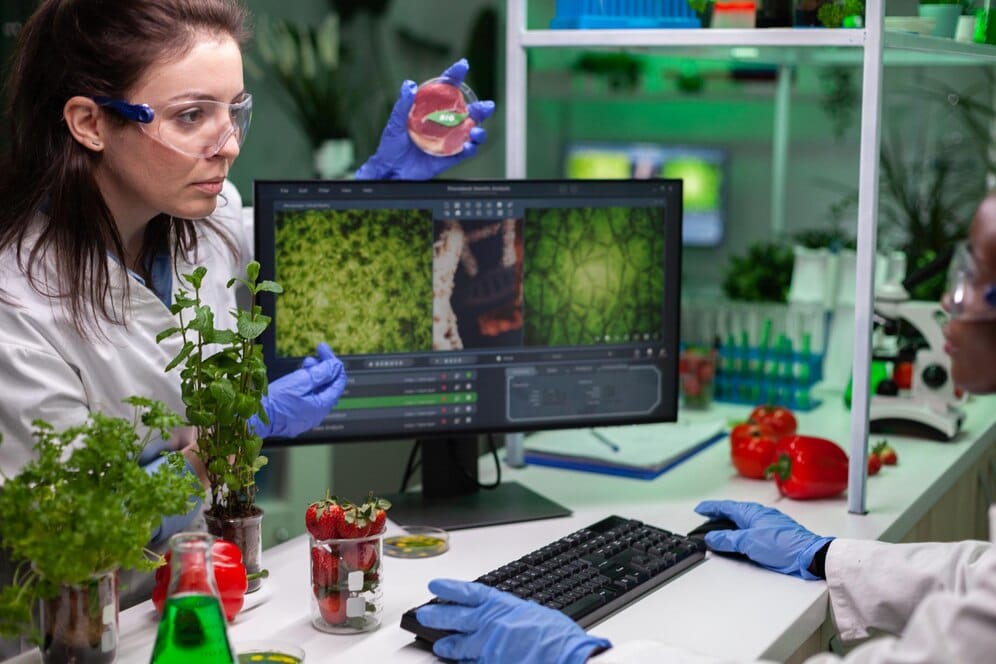Unveiling the Potential of Biohacking: DIY Biology for Self-Improvement
Explore the fascinating world of biohacking, where individuals leverage DIY biology techniques for self-improvement and optimization. Learn how biohacking can enhance physical performance, mental acuity, and overall well-being.

Introduction

Biohacking, a burgeoning movement at the intersection of biology and technology, offers individuals the opportunity to optimize their physical and cognitive performance through DIY biology techniques. In this article, we delve into the principles and practices of biohacking and explore its potential for self-improvement.
Biohacking: Redefining Human Potential
Biohacking encompasses a wide range of practices aimed at enhancing human performance and well-being. From dietary interventions to wearable technology and genetic engineering, biohackers employ various strategies to optimize their health, cognition, and longevity.
Understanding the Basics of Biohacking
At its core, biohacking involves the systematic manipulation of biological systems to achieve desired outcomes. This may include optimizing nutrition, sleep, exercise, and stress management, as well as experimenting with supplements, nootropics, and other interventions.
The Science Behind Biohacking
Biohacking draws upon principles from biology, neuroscience, genetics, and biochemistry to inform its practices. By understanding the underlying mechanisms of human physiology and cognition, biohackers can design personalized interventions tailored to their individual needs and goals.
DIY Biology: Empowering Self-Experimentation
One of the defining features of biohacking is its emphasis on self-experimentation and self-quantification. Through the use of wearable devices, biomarker testing, and personalized tracking tools, biohackers gather data to inform their interventions and assess their effectiveness.
Biohacking for Physical Performance
Biohackers employ a variety of strategies to optimize physical performance, including targeted exercise routines, nutritional interventions, and recovery techniques. By fine-tuning their training regimens and supplementation protocols, biohackers aim to enhance strength, endurance, and resilience.
Biohacking for Mental Acuity
Cognitive enhancement is another focus area of biohacking, with practitioners seeking to improve memory, focus, and mental clarity through various interventions. Nootropics, meditation, neurofeedback, and brain stimulation are among the techniques used to enhance cognitive function.
Biohacking for Longevity
Extending lifespan and promoting healthy aging are central goals of many biohackers. By addressing key factors such as inflammation, oxidative stress, and cellular aging, biohackers aim to optimize their healthspan and mitigate the effects of aging on the body and mind.
Ethical Considerations in Biohacking
While biohacking holds promise for improving human health and performance, it also raises ethical concerns related to safety, consent, and equity. As the field continues to evolve, it is important to prioritize responsible practices and ethical guidelines to ensure the well-being of individuals and society as a whole.
Conclusion
In conclusion, biohacking represents a fascinating intersection of science, technology, and self-improvement. By leveraging DIY biology techniques, individuals have the potential to optimize their physical performance, mental acuity, and overall well-being, unlocking new possibilities for human potential.
FAQs
- What is biohacking?
- Biohacking is the practice of using DIY biology techniques to optimize human performance and well-being.
- How do biohackers improve physical performance?
- Biohackers employ strategies such as targeted exercise routines, nutritional interventions, and recovery techniques to enhance physical performance.
- What are some examples of cognitive enhancement techniques used in biohacking?
- Nootropics, meditation, neurofeedback, and brain stimulation are among the techniques used to improve memory, focus, and mental clarity.
- Is biohacking safe?
- While biohacking holds promise for improving health and performance, it is important to approach it with caution and prioritize safety.
- Can anyone become a biohacker?
- Yes, biohacking is accessible to anyone interested in optimizing their health and performance through self-experimentation and personalized interventions.
- Are there any risks associated with biohacking?
- As with any experimental practice, biohacking carries inherent risks, and individuals should exercise caution and seek guidance from qualified professionals when implementing interventions.